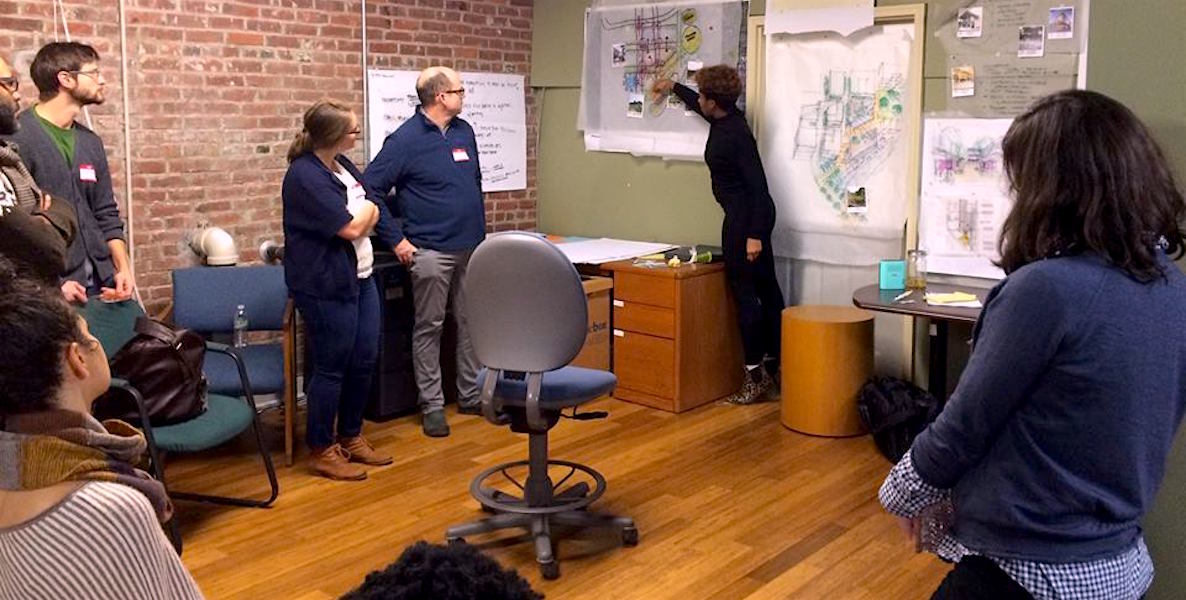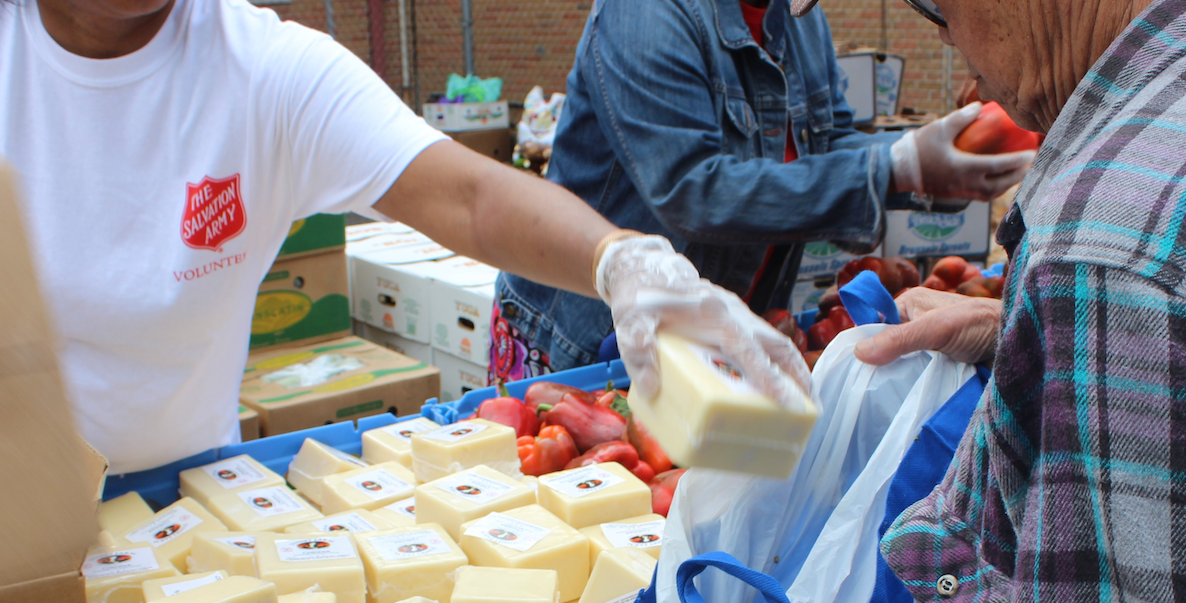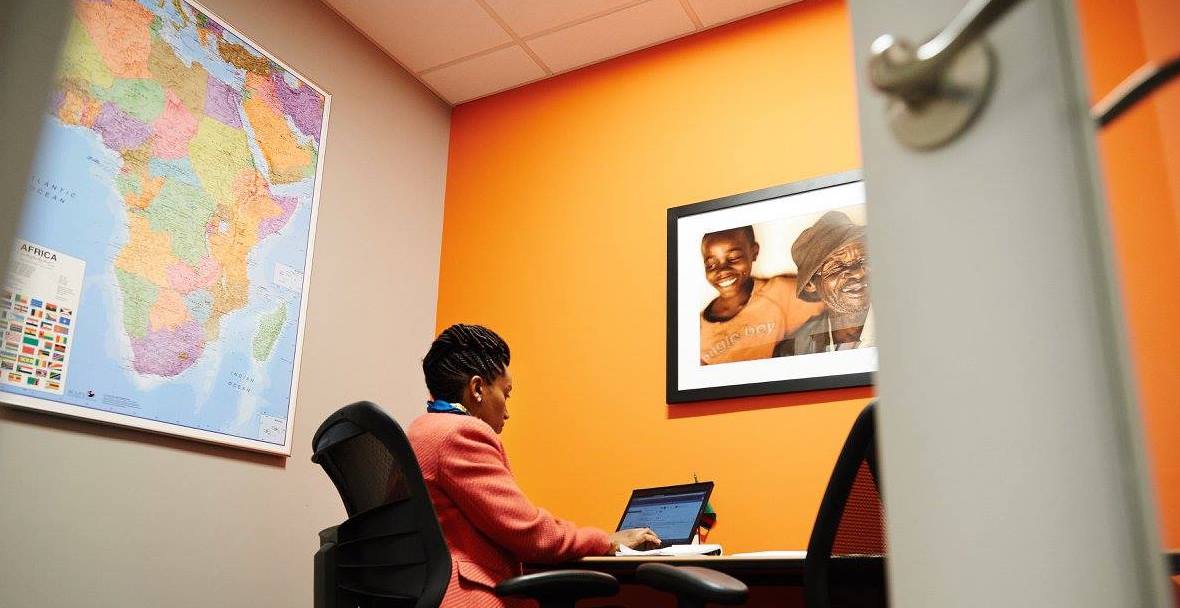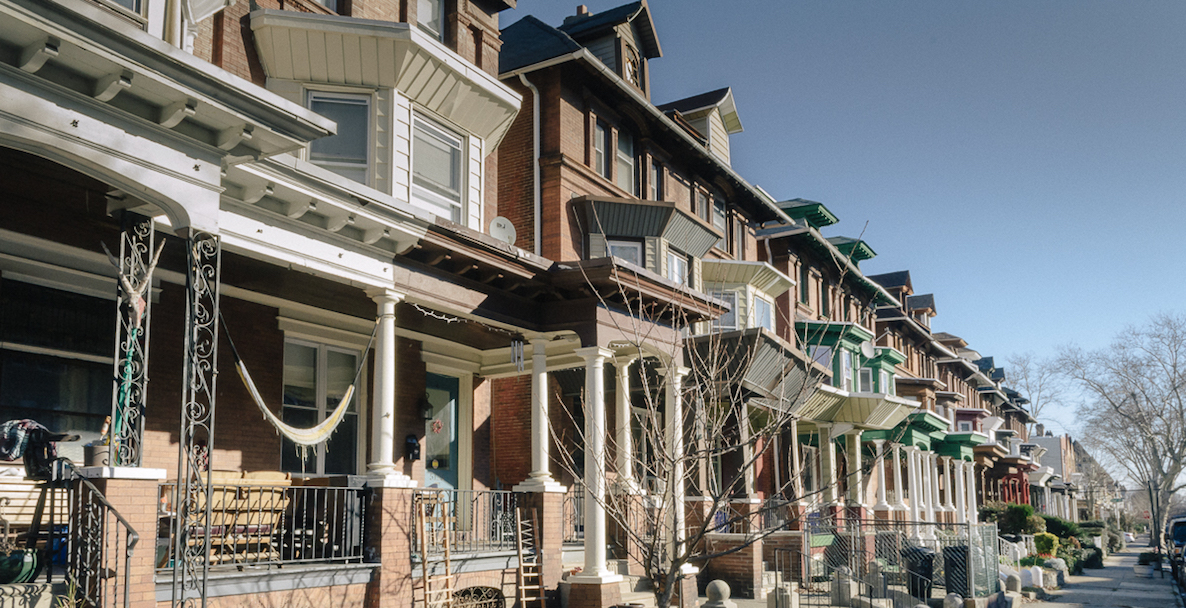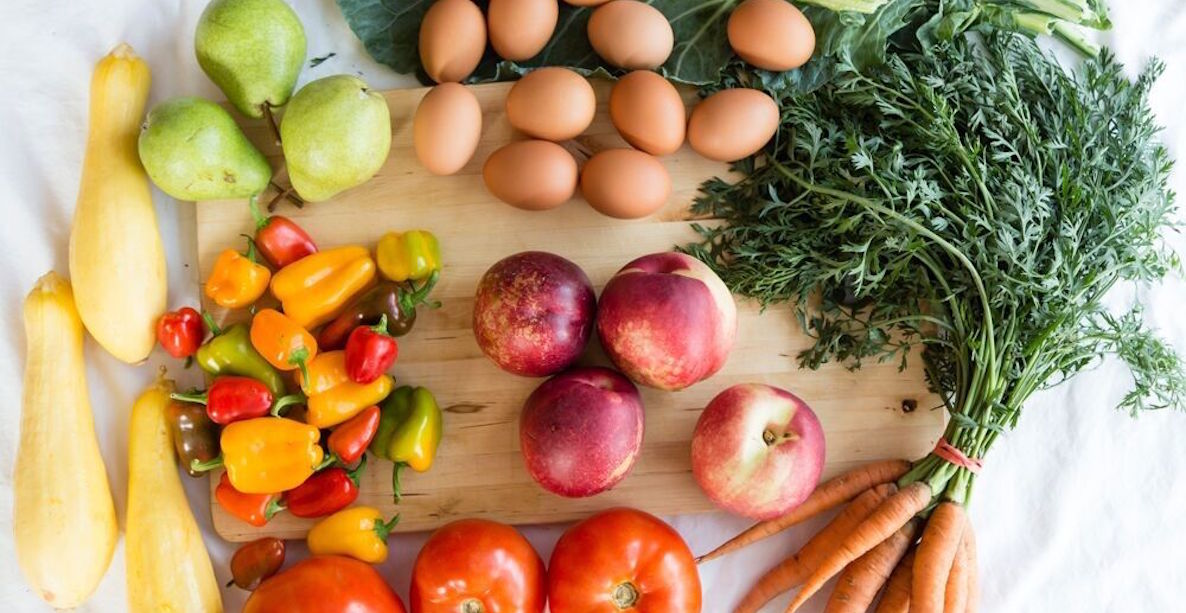More than 10 years ago, husband and wife Haile Johnston and Tatiana Garcia Granados went to a farmers’ produce auction and bid on a lot of apples. They were looking for fruit and veggies for their community-based nonprofit that worked to bring healthy food, among other things, to their Strawberry Mansion neighborhood. In the excitement of the moment, they put their name in the ring for the apples without knowing how many cases they would get or how much it would cost—and they won.
This was a scary moment—buying one case of apples from a distributor in Philadelphia had frequently cost them upwards of $25, and they weren’t sure how many cases they had purchased. They were relieved to find that they had bought only 10—and perplexed to learn that their total, for all 10, was less than $50.
 The pair realized the wholesale distributor who bought from the farmers and sold to the consumers was profiting way more than they had expected. “There’s a gap between what farmers are making and what consumers are paying,” explains Johnston, who, with Garcia Granados, founded wholesale distributor The Common Market in 2008 to try to alleviate this middleman cost. “We wanted to make the function in the middle less extractive.”
The pair realized the wholesale distributor who bought from the farmers and sold to the consumers was profiting way more than they had expected. “There’s a gap between what farmers are making and what consumers are paying,” explains Johnston, who, with Garcia Granados, founded wholesale distributor The Common Market in 2008 to try to alleviate this middleman cost. “We wanted to make the function in the middle less extractive.”
The couple set out to create a non-profit wholesale distributor that could bring down costs for consumers and bring up profits for farmers, not necessarily eliminating the middle man, but becoming a much fairer middle man themselves. They wanted to also rebuild connections between the institutions in Philadelphia that serve thousands of meals daily and the farmers that are so close to them. “Within the last 50 years we’ve seen this breakdown in favor of global trade,” explains Johnston. “Larger wholesales were favoring price and shelf stability and this meant they weren’t going to local farmers.”
The Common Market has redrawn those connections with local farmers and brings their products to their warehouse in the heart of Philadelphia at the intersection of Erie and D Streets. They partner with their farmers to determine jointly what makes sense to take on that season, both making recommendations for planting choices and looking for new farmers who are already doing things that satisfy market trends. Most of their farms are located within 100 miles of the city, though they sometimes have to extend to 200 miles in the case of products like veggie burgers and maple syrup.
They then sell to some co-ops and small grocery stores where individuals can buy and cook their product, as well as to large institutions like colleges, school districts, elderly care facilities, and prisons in an effort to guarantee large purchases for farmers and to meet consumers where they are already eating—at work, at school, or in the case of nursing homes and prisons, sometimes at home.
In 2018 alone, the Common Market’s ingredients have been used in 4.2 million meals. Their purchases have supported nearly 18,000 acres of farms and more than 1,100 farm jobs. Since their inception in 2008, they have provided ingredients for more than 12 million meals.
Johnston and Garcia Granados decided to hone in on institutions instead of simply trying to bring more farmers’ markets to low-income communities because people simply do not eat all or even most of their meals at home, particularly in low-income communities where access to high-quality grocery stores is often limited and access to bodegas and fast food is ample.
Cheryl Bettigole, Director of Chronic Disease Prevention for the Philadelphia Department of Public Health, says this discrepancy makes eating healthy foods in low-income neighborhoods incredibly difficult. “Shopping often requires multiple bus rides to get to a supermarket and paying for a ride home because SEPTA doesn’t allow people to bring multiple grocery bags on its vehicles, nor would that be terribly easy,” she explains. “Little in the way of healthy foods is available in corner and convenience stores and these foods are often both lower quality and higher in price than those in larger grocery stores.”
![]()
By serving institutions where food is prepared for employees of visitors, the Common Market can introduce local, nutrient-dense food to a high volume of people who might not otherwise be getting it. “Large institutions that employ and/or feed large numbers of people, particularly those with low-income employees, provide the opportunity for people to taste healthy foods they may never have had before and for them to re-imagine what food can and should be,” says Bettigole. Since these institutions buy in such high volumes, they can also impact market trends in a way individual buyers can’t, thus encouraging manufacturers to prioritize healthier products and causing ripples through the food system.
![]()
In 2018 alone, the Common Market’s ingredients have been used in 4.2 million meals. Their purchases have supported nearly 18,000 acres of farms and more than 1,100 farm jobs. Since their inception in 2008, they have provided ingredients for more than 12 million meals.
Though the apples were a stand-out moment in Johnston and Garcia Granados’ path toward founding the Common Market, the kids they worked with in Strawberry Mansion while running the East Park Revitalization Alliance, and their obvious lack of access to healthy food, were the source of passion for the project. The group frequently led healthy cooking classes, but Johnston and Garcia Granados quickly realized that the skills the participants learned in class couldn’t be transferred into their real lives if they couldn’t purchase healthy ingredients in their neighborhoods. As a result, reaching low-income communities and “democratizing access to good food” has always been a priority for the company.
Johnston and Garcia Granados got the non-profit business off the ground with the help of funders like the Claneil Foundation and the W.K. Kellogg Foundation, but the model has become largely self-sustaining and in the past two years has expanded to have hubs in both Georgia and Texas. The hub that operates out of Philadelphia, labeled the Mid-Atlantic, encompasses New Jersey, New York, Delaware, Maryland, and even Virginia. Johnston says they aim for individual hubs to be able to cover the costs of aggregating and distributing food between years three and four, though they still may rely on philanthropic outlets to support events and activities. They hope to create a hub out of Chicago in the next few years.
“The food systems and markets are focusing on values that aren’t supportive of consumer well being,” explains Johnston. “Cheap only comes through exploitation, whether that’s exploitation of the environment, or of farmers, solely so owners and brokers can drive a profit.”
With this expansion comes a focus on underrepresented farmers; in Atlanta, 40 percent of food purchased by the Common Market was sourced from black farmers. “We’re trying to create special opportunity for these farmers who have been excluded from market opportunities for generations and who have suffered systemic land loss,” explains Johnston.
In addition to expanding throughout the country, Garcia Granados and Johnston have been working to expand in Philadelphia where it all started; the Common Market began working with the School District of Philadelphia and Revolution Foods just last fall to incorporate healthy, local ingredients into meals in schools that lack full kitchens. The Common Market provided frozen vegetables and whole and sliced apples, among other ingredients, to Revolution Foods, who then made meals for the schools, which were then delivered by the Common Market daily.
The pair is even expanding within their own warehouse, making room for other start-up nonprofits who work toward the same goals as they do. In 2013, Soom Foods, a company run by three sisters that produces tahini products from Ethiopian grown sesame, got its start in the warehouse. In 2014, a mushroom farm popped up in the basement of the urban facility, courtesy of Mycopolitan mushrooms. “We’re always trying to figure out how to build out our infrastructure,” says Garcia Granados. “How do we leverage that beyond what we can do ourselves and create conditions for others to grow?”
![]()
The Common Market launched a workplace-centered farmshare program in 2012 that is a cross between a CSA farmshare and a meal delivery subscription kit like Blue Apron. You can choose from a variety of plans, ranging from a $22.75 biweekly poultry share of 3 pounds of chicken and turkey, to a $32 biweekly fruit, vegetable, and egg share that includes 8-9 seasonal produce items and a dozen eggs. You can pick up from the Academy of Natural Sciences, the First United Methodist Church, or one of 50 total site locations. Johnston says that the idea was to make the traditional CSA model more accessible by working with multiple farms and allowing for monthly payments, making it more affordable and ensuring those who buy into it that they will definitely get the food they paid for, regardless of weather or other unforeseen circumstances.
Participants often pick up their shares at their workplaces, and now that the program has been around for several years, the Common Market had hired the Penn Center for Public Health Initiative to produce an impact study assessing the program’s effect on employee attendance rates and workplace behaviors.
![]()
Garcia Granados and Johnston, who met while undergraduates at Penn, both grew up in homes with heavily used gardens and kitchens. In Garcia Granados’ case, that garden was actually a farm in Guatemala, which provided her with first-hand agriculture experience starting essentially at birth. When Johnston was in middle school, his dad began produce vending, and Johnston would often tag along to the fast-paced farm stand events. Both founders have degrees from Wharton—Garcia Granados her MBA—providing them the business acumen that pushed them to transform their formative childhood experiences into a deep understanding of the global food system and into a career that uses business strategies for social good.
The Common Market’s goals are ambitious and the hope is that eventually, the entire food system will shift, and it will no longer be cheaper to get food from across the globe than it is to get it from your own backyard. Currently, that’s not the case. “The food systems and markets are focusing on values that aren’t supportive of consumer well being,” explains Johnston. “Cheap only comes through exploitation, whether that’s exploitation of the environment, or of farmers, solely so owners and brokers can drive a profit.”
Now, the founders hope that they can create additional jobs and economic opportunities to fight food insecurity from all angles. “The root cause of food insecurity is poverty,” says Garcia Granados. “We’re working at the root causes.”
Photo via The Common Market


